A conversation with Director Michael Borodin.
Interview by Sevara Pan

Q: Tell us about the title of the film. Why COTTON100%?
MB: It refers to the ‘100% cotton’ clothing label, which you can basically find on any T-shirts bought in the mass market. ‘100% cotton’ is a sign of quality—it is natural, eco-friendly and comfortable. But what is behind this label can be disconcerting, whether it is using forced labour in the cotton harvest or draining water resources for cotton production, especially in water-challenged areas that are not adapted for such a crop.
Q: How did you meet the main protagonists Yelena and Muhabbat?
MB: The film’s co-author Timur Karpov, who is also a documentary photographer and human rights activist, has known Yelena for some time now as he accompanied her on numerous monitoring trips to the cotton fields and took photographs. In a way, she became our link to the workers who were forced to toil away in the cotton fields. Timur’s mother, Umida Akhmedova, a notable Uzbek photographer, documentary filmmaker and camerawoman, introduced us to the other protagonist Muhabbat as she had previously worked with her as part of her projects. So we went to Khorezm, and Muhabbat let us into her house. Muhabbat is a farmer. Well, she had a farm, she doesn’t have one now, and she did some monitoring as well. This was the thread that connected these two women.

Q: How did Muhabbat combine her job as a (cotton) farmer and monitoring of forced labour in the cotton harvest? We learn in the film that Muhabbat works for a UN labour agency. Was there no conflict of interest?
MB: The system operated in such a way that if you, as a farmer, have a field, you have to grow cotton there. Muhabbat had a small field where some local women managed to work, earning some money by picking cotton. But when the fields were larger and the farmers were wealthier, the demand for workers was also greater. In terms of monitoring, on the one hand, Muhabbat had to inquire with the workers about their working conditions, and on the other hand, she could not really quarrel with neighbouring farmers. And this put her in an ambiguous position, not because she had to sacrifice her integrity, but because this is how things were for people like her in such circumstances. And yes, Muhabbat worked with the UN’s International Labour Organisation (ILO). I don’t know how exactly it works, but apparently they work with people on the ground. And as far as I know, there are not that many people who are willing to engage in these kinds of activities.
Q: In the film, we observe that Yelena does not speak Uzbek, and it seems to create a sort of distance between her and the workers in the cotton fields.
MB: Yelena does not have much close contact with the workers in the cotton fields, because basically there is this chaos that she needs to document. Yelena goes in there and sees scores of people working in terrible conditions and living in one bare room with no heating, and she is there to document this fact itself. And this needs to be done quickly before anyone arrives, be it a foreman or someone from the administration, police or local authorities. There is not much opportunity then to have an in-depth kind of conversation with the workers. Furthermore, I reckon her intentions and motivations are clear to the workers, even with the language barrier. When she comes in and distributes leaflets, which are in Uzbek by the way, it is immediately clear what it is all about. Then again, she asks the workers some basic questions, like whether food has been provided to them, or whether there is a proper place for them to sleep. I think many could understand and answer her questions without much effort. That said, there are not many people who are willing to engage in human rights work in Uzbekistan as it bears a lot of risks. Yelena, for example, has been arrested, beaten up and placed in a psychiatric hospital several times. This has been a risky venture for her health and life.
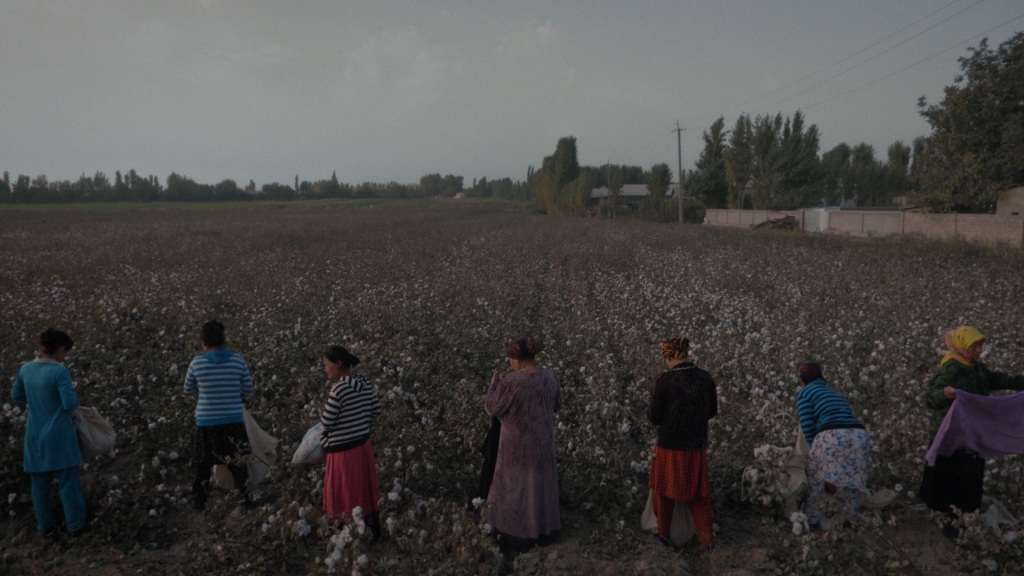
Q: The absence of some sort of vehement protest or indignation, which one may expect from the workers, is striking.
MB: There is a scene in the film where a foreman says that the workers willingly request holidays away from their main jobs in order to help their homeland collect ‘white gold’, that is cotton. So he basically lays out how this scheme of coercion works, and then if you do not do that, you will be fired or dismissed, which will leave you and your family with no means of sustenance. There are assorted mechanisms that put pressure on the workers. When we are watching the film on a flat screen in a cinema, we expect some kind of justice, an emotion, which from our point of view, would seem apt in such a situation. But for these people, indignation is a risky business. These activists also try to tackle that by explaining to the workers that this kind of labour is not a norm, that they should not be forced to work in the cotton fields.
In Europe, there was an industrial transition, which happened at the end of the 19th and beginning of the 20th century and was accompanied by the emergence of trade unionism and labour movement. Central Asia is a rather paradoxical example, where such a transition did not fully come about, and then the Bolsheviks came to power, ushering in planned economy and communism, where labour was to be used for some greater good, but in fact, it had people exploited. And then the Soviet Union collapsed, which was followed by a wild transition to capitalism, with certain Soviet practices still persisting in Uzbekistan under the [Islam] Karimov dictatorship. And here we are, in the 21st century, and we are still observing some of the terrible labour conditions. And that has happened in the climate of the irremovability of power and the absence of institutions like trade unions or liberal political parties that could ensure democratic progress and transition to social capitalism. We have a new generation now, which did not grow up in the Soviet Union, and we are observing a shift in the awareness of where we are in terms of human rights.
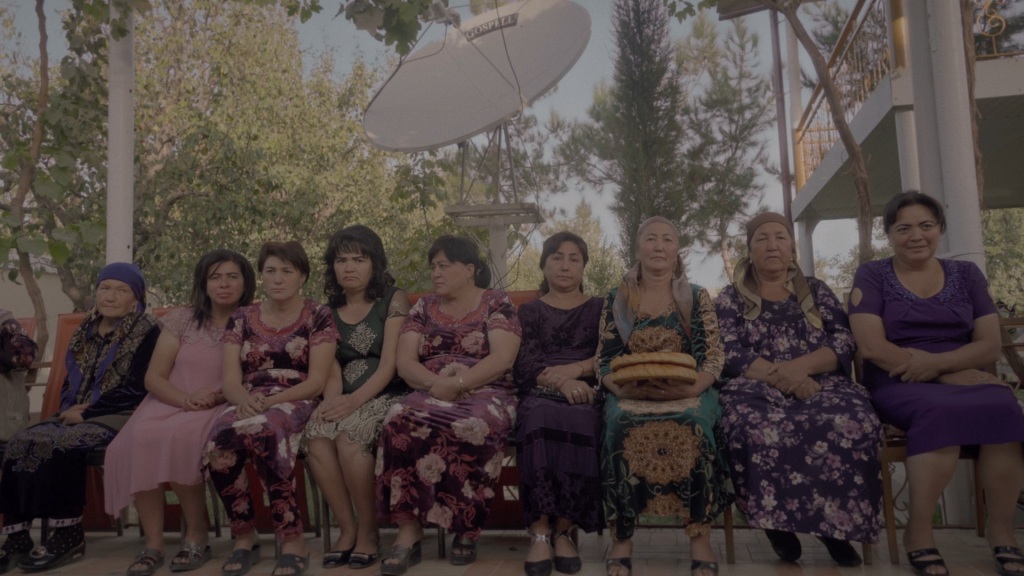
Q: The film sheds light on the interior life of Muhabbat and her family. Why did you decide not to focus on Yelena’s life?
MB: We thought about it, but it was a matter of balance. If we showed Yelena’s life, it would shift the balance a little towards how hard it is for human rights activists to live in Uzbekistan. It would probably be a different film then. We decided that through Muhabbat, through her life, we will introduce the context to the viewer, paint a picture of the Uzbek way of life.
Q: Yes, the film offers a slice of the Uzbek way of life, and it is rather epic. There is a certain theatricality to the portrayed customs and rituals, be it a wedding ritual or circumcision. In one scene, we see a young boy sobbing after his circumcision. He is surrounded by hovering adults, gleefully dancing around him and trying to bribe him with toy trucks and Uzbek sums.
MB: The boy’s point of view here is interesting. When I was a child, I remember our neighbours had a ‘toy’ [the celebration of a wedding or a boy’s circumcision]. They prepared plov [also known in other countries as pilaf, a traditional rice dish], everyone was running around, having fun. The boy was given gifts. It was a celebration. In the film, we show a young boy inside this process. You, as an observer, are also plucked into the action, but you are still detached somehow. There is a camera between you and the event.
I would also like to mention the slaughtering of a sheep scene. I know that some selectors at European festivals found it unnerving to witness it on screen, but this is the life that happens every day in Uzbekistan. You come across it daily, in one way or another. Your neighbours invite you for plov, and they have just slaughtered a sheep, or your own family slaughters a sheep. My family did that too. I have this memory of coming out to the backyard, and there hangs a slaughtered sheep, and it is inflated as they are preparing to skin the animal by inflation. I walked out of the house and immediately faced it. How could I not capture it in the film?
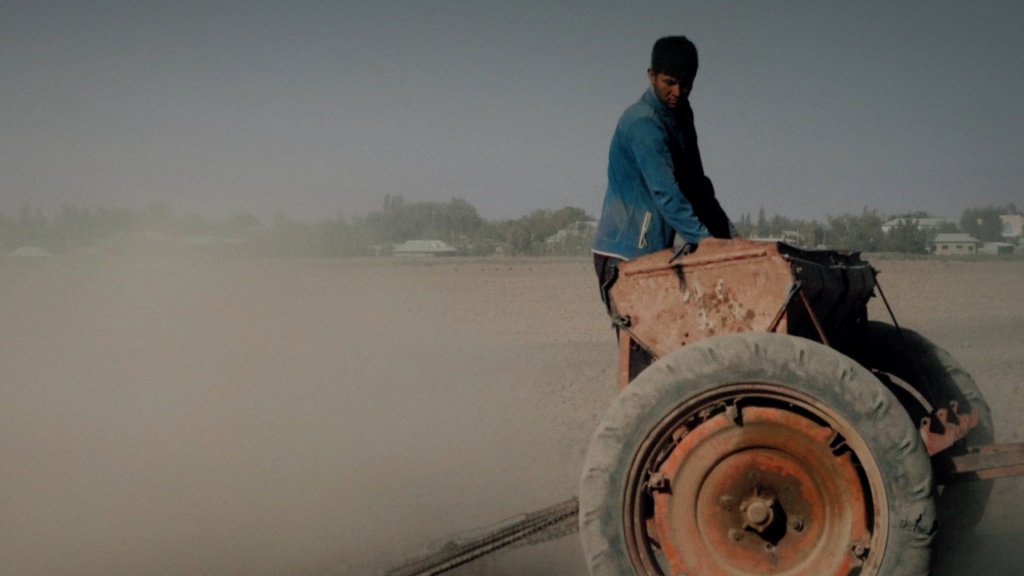
Q: Coming back to Yelena, in some scenes we see that she meets with regional heads, who speak to her in a condescending and patronising manner. Did they mind the camera in these impromptu meetings?
MB: They were a tad lost because it was usually an early morning, and we were uninvited guests. Moreover, we were not a big film crew with bulky cameras and sound equipment. We were just a couple of guys who came with Yelena, and we had a small camera with us. It was never hidden. They could see that they were being filmed, they were aware of it. You know, they would invite us in, but in the conversation with Yelena, they would realise that they could not get her to agree, nor could they fool her, or the camera. In one scene, a regional head immediately stops the conversation and leaves. In another scene, a foreman tries to explain something, but he resorts to using some ‘hurrah! patriotic’ terms, maybe because he served in the military. For them, these workers are just subordinates. They do not look at them as persons with a difficult fate.
Q: To me, this film also is also a critique of certain international human rights activities in Uzbekistan. The distribution of summer caps in winter seems rather ludicrous.
MB: We were making an art documentary that charts the story of these two women. So whatever appears on screen simply unfolds in the course of their lives. We did not set out to offer a critique of the work of international human rights organisations in Uzbekistan. To me personally, even that kind of human rights activity taking place in Uzbekistan is already a step forward.
Q: Why did you choose to focus on the topic of forced labour in this film?
MB: The film’s co-author Timur Karpov has worked on this topic for a number of years, also together with Yelena. What motivated me personally is my own childhood experience. I picked cotton as a schoolboy. Back then, I lived in Toytepa, in the Tashkent region, and we were regularly brought to the fields to pick cotton instead of attending school. Just imagine children from the grades 5 – 11 being taken to the fields to pick cotton. It would be outrageous in Berlin, where one of the film’s screenings took place. The realisation of what an odd experience that was, pushed me to delve deep into that topic, which I still address in my films in one way or another. My debut drama film ‘Convenience Store’ (‘Produkty 24’) also focuses on the topic of forced labour and modern slavery. ‘COTTON100%’ is a continuation of this topic. It so happened that both of them were released last year, a drama film and a documentary, and they both deal with modern slavery and forced labour.
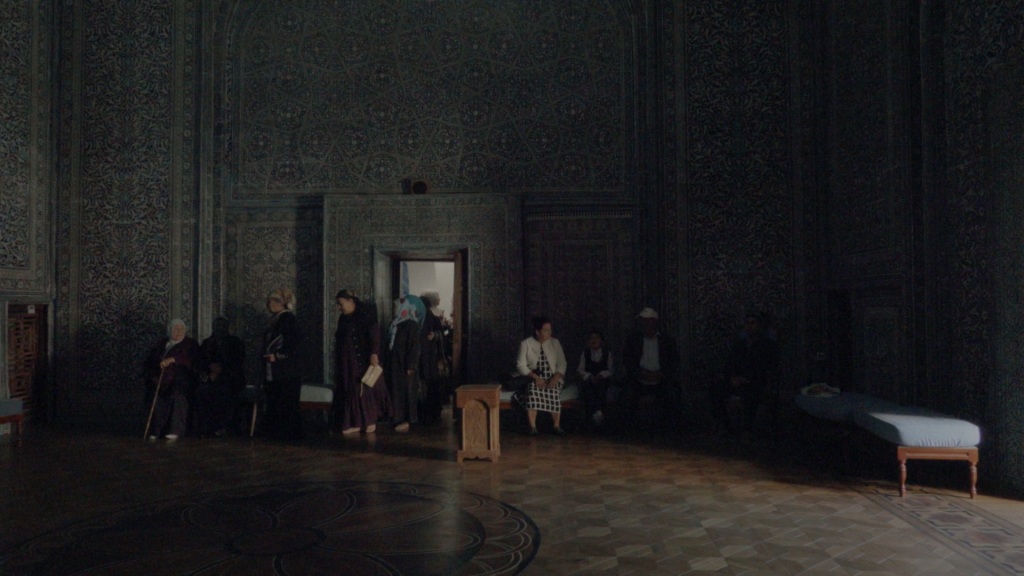
Q: I have read that the situation with systemic forced labour and child labour in Uzbekistan has seemingly improved.
MB: Uzbek cotton was boycotted for a few years by some [300] companies and corporations, such as H&M and others, because of systemic child labour and forced labour. While child labour was said to have been banned under the Karimov presidency, forced labour of adults persisted up until very recently. There have been a number of economic and political factors contributing to the change in the past few years, but I think it has also improved thanks to the monitoring activities of such activists as Yelena, who have been drawing attention to the topic of forced labour. Now the cultivation and harvesting of cotton has been transferred to special organisations, which are expected to operate in a more civilised manner, so to speak. We still need to see how things will work in practice, because one thing is to announce that systemic forced labour is no longer an issue, and another thing is to see how it actually works in practice. I hope that forced labour will completely cease to exist. But when we filmed in 2018, it was still in use. This film captures a slice of that time in Uzbek history. It is a vignette into the lives of people who were forced into the fields to pick cotton and those who were trying to do something about it.
Q: Were there screenings of ‘COTTON100%’ in Uzbekistan?
Screenings of the film were held in Tashkent during Artdocfest Echo in Uzbekistan. The documentary was also screened as part of the ‘Pakhta’ (‘Cotton’ from Uzbek) exhibition in the 139 Documentary Center. The exhibition went on for around two months, and as part of the exhibition, there were screenings of the film, which were followed by discussions. There were no big issues during these screenings, as far as I know. There was a man, supposedly from the state security service, who came by the centre because of the screening once, but that was it. As for the reception of the film, I have noticed that the film resonates with different audiences no matter where it is screened, be it in Berlin or Tashkent. There is always someone in the audience who recalls picking cotton in their childhood, and this resonates with them because it was a large part of their lives.

Q: Any new projects coming up?
MB: Right now, I am working on a film project, which will tell the story of two women who are forced to flee from their past that continues to haunt them. This will be a social drama but with a shift in the direction of noir horror. Furthermore, my producer Julia Shaginurova and I are also launching a film school in Tashkent. One of the short programmes we will offer is ‘Women Watch Uzbekistan’, aimed at helping women producers and directors develop their projects and make it possible for them to go out into the world, pitch them at international film festivals, make their projects known and perhaps seek collaborations.

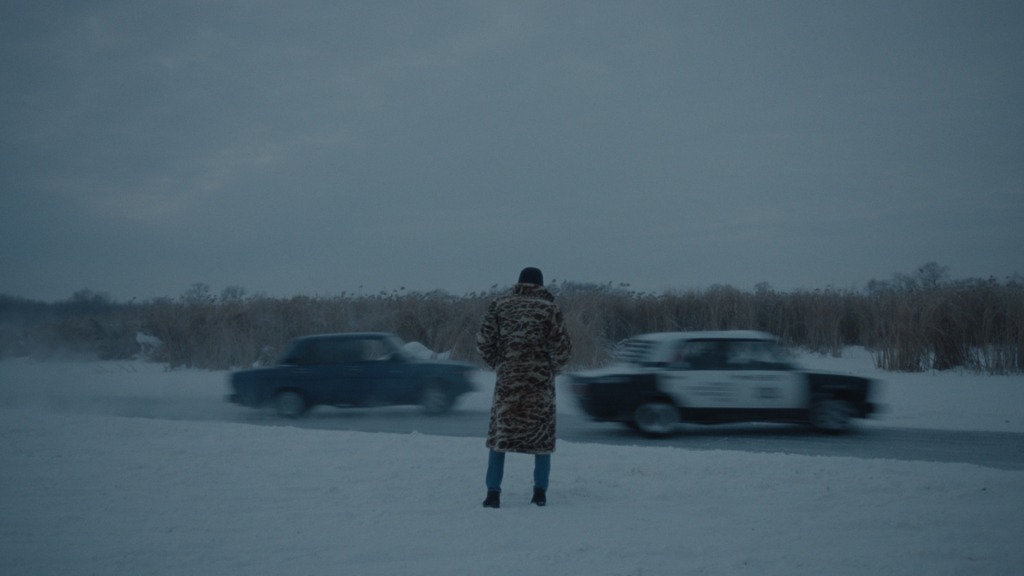
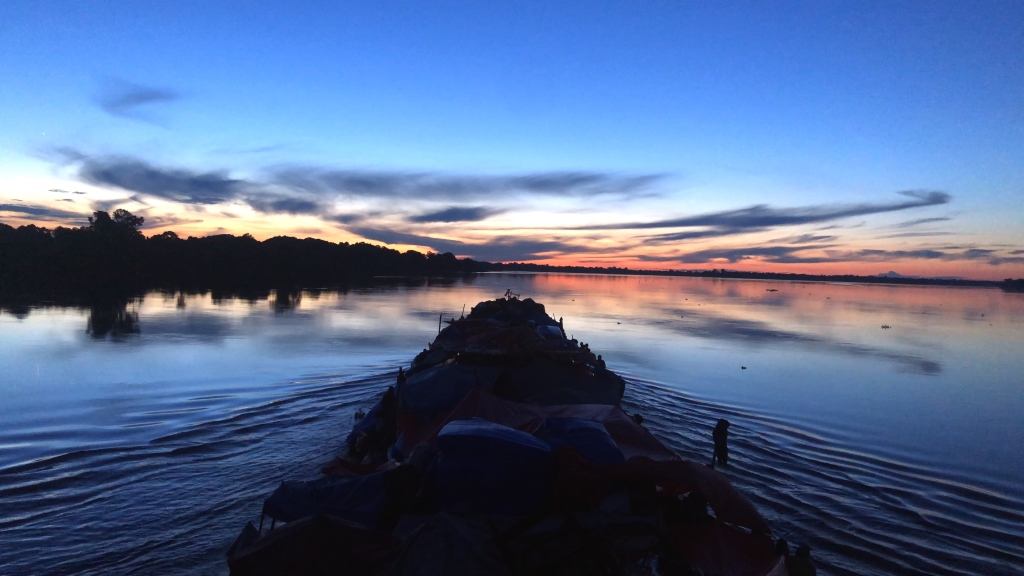
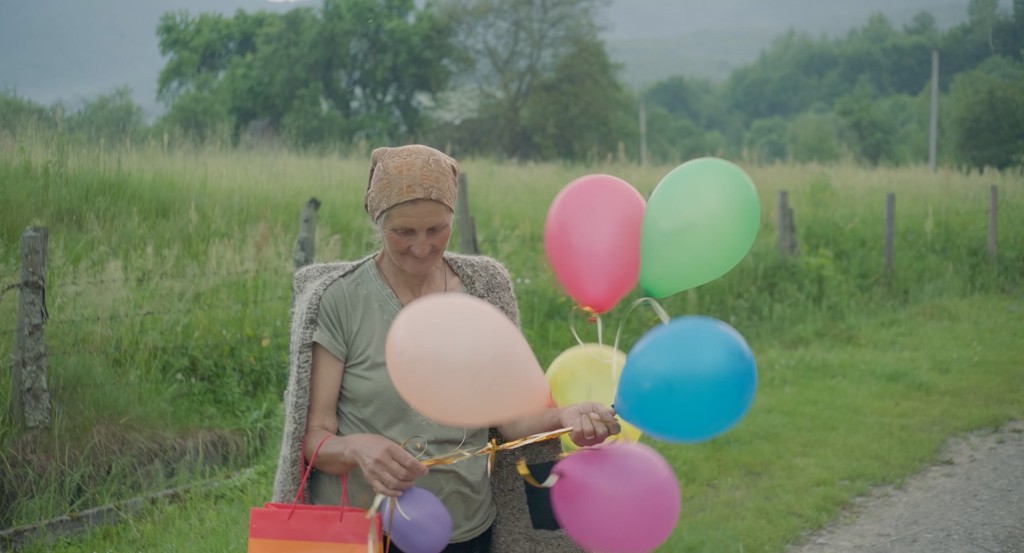
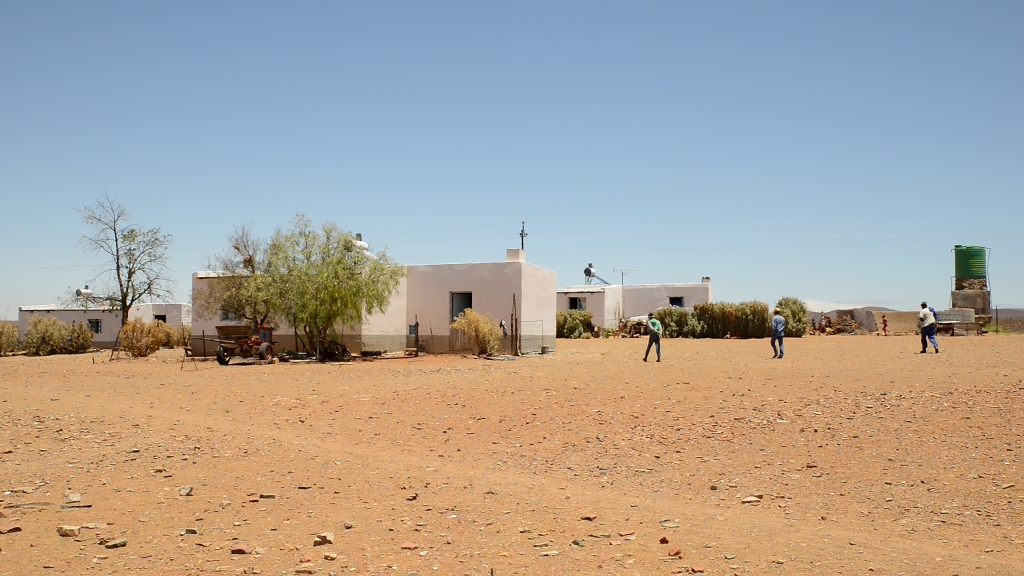
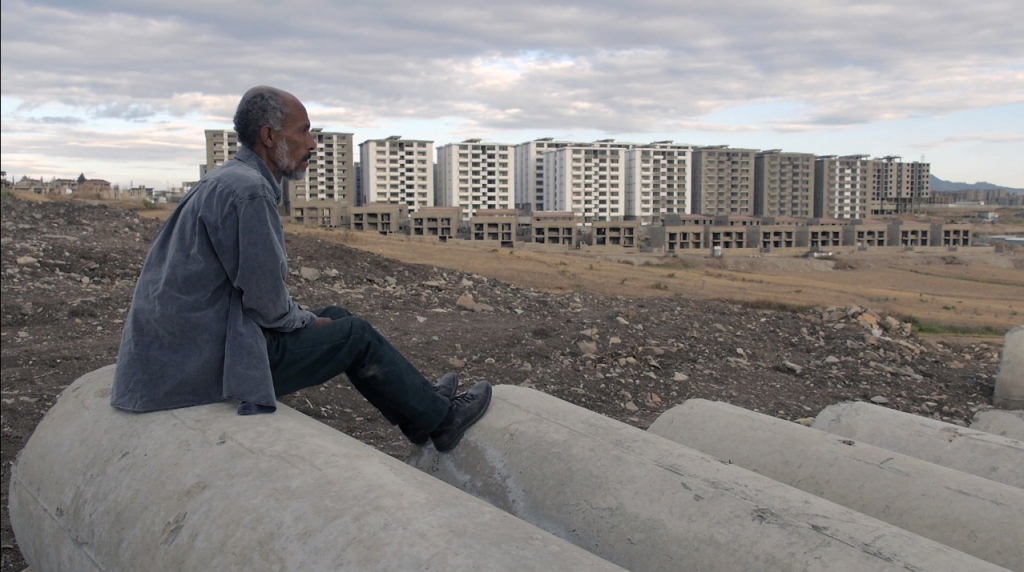
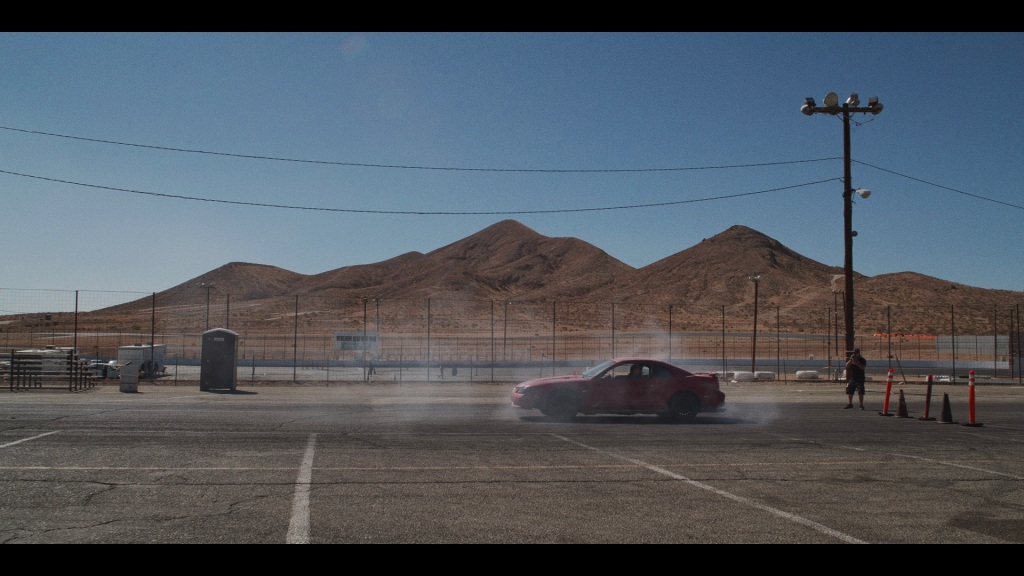
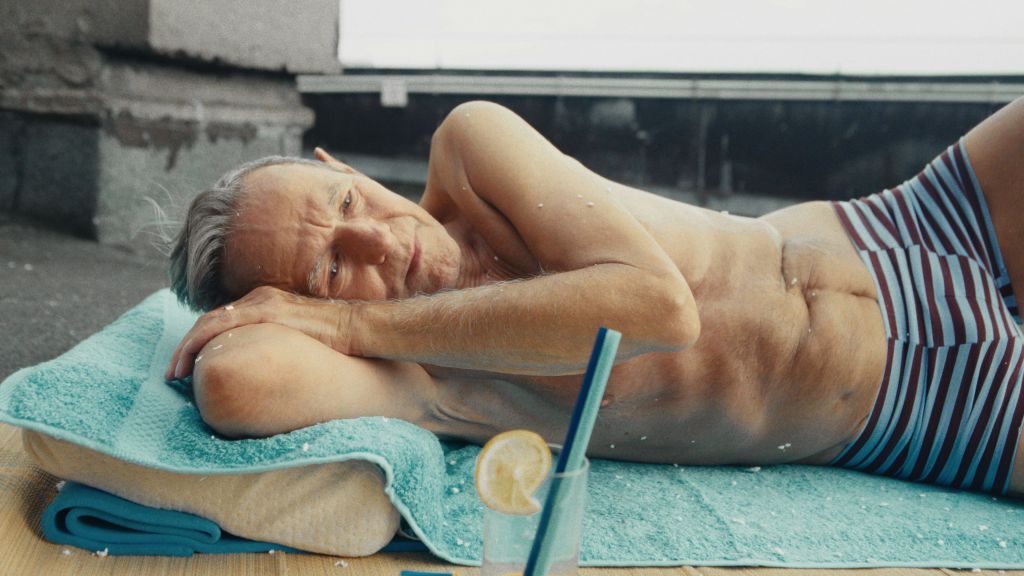
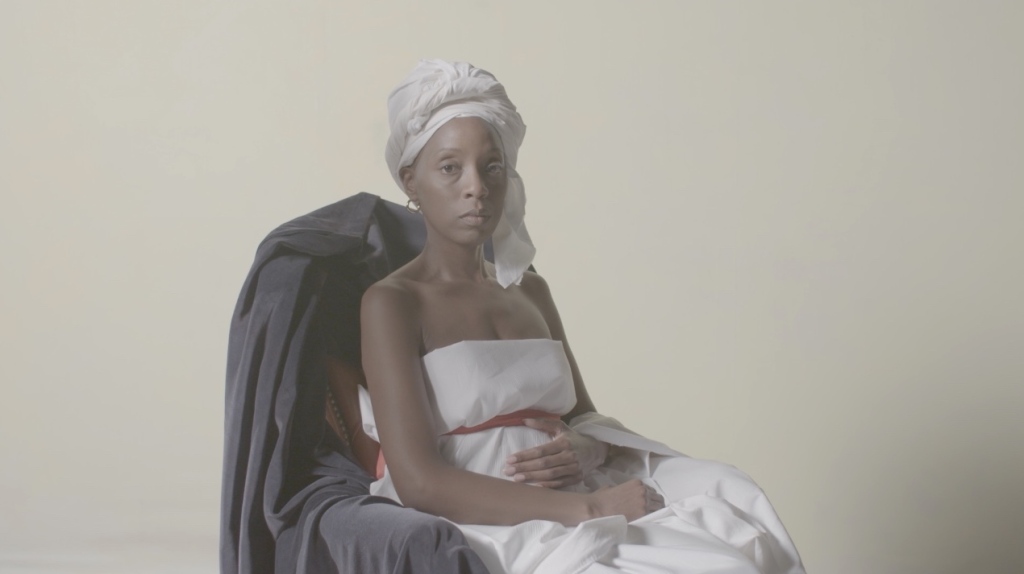
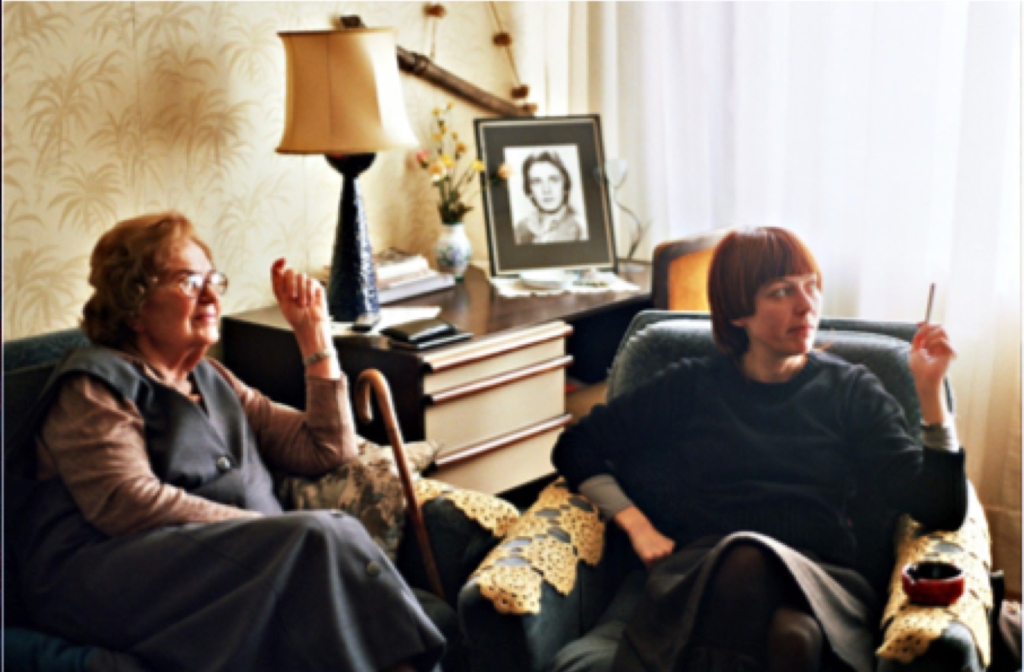
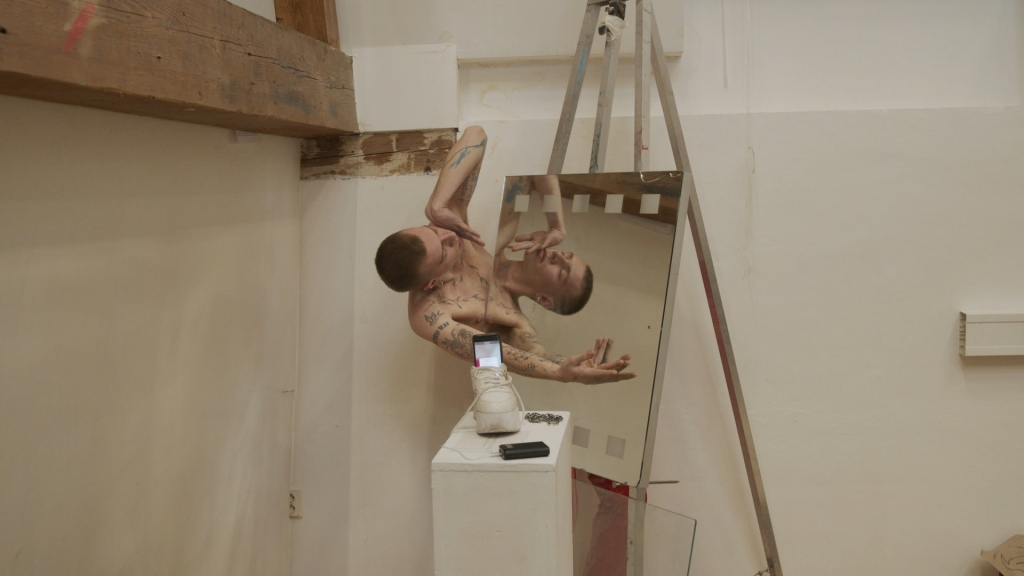
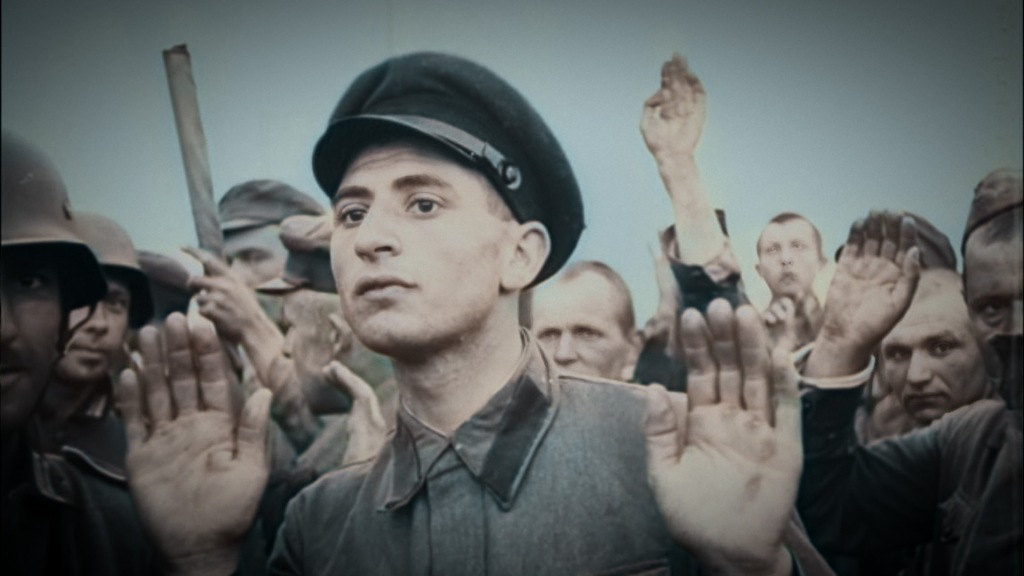
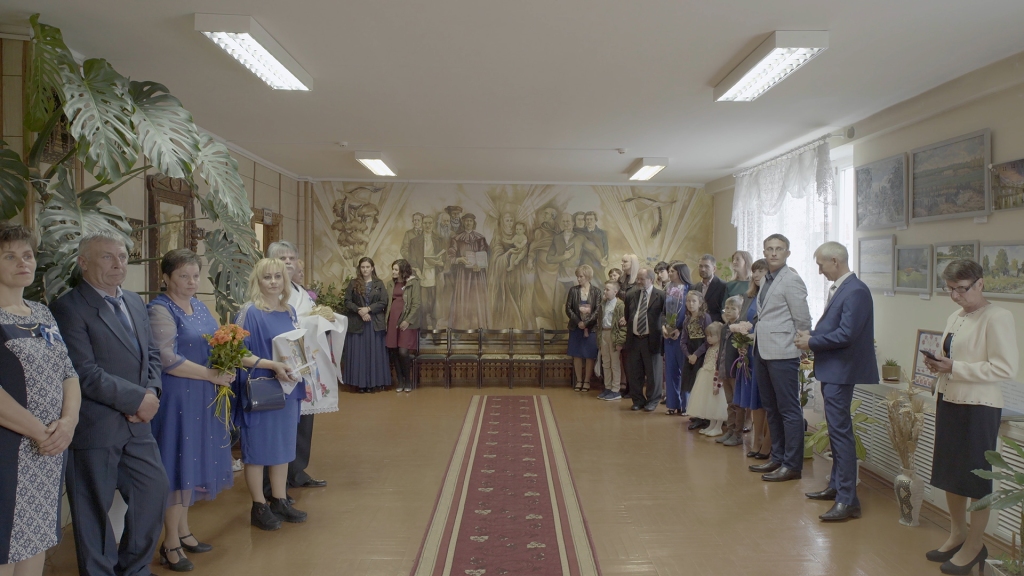
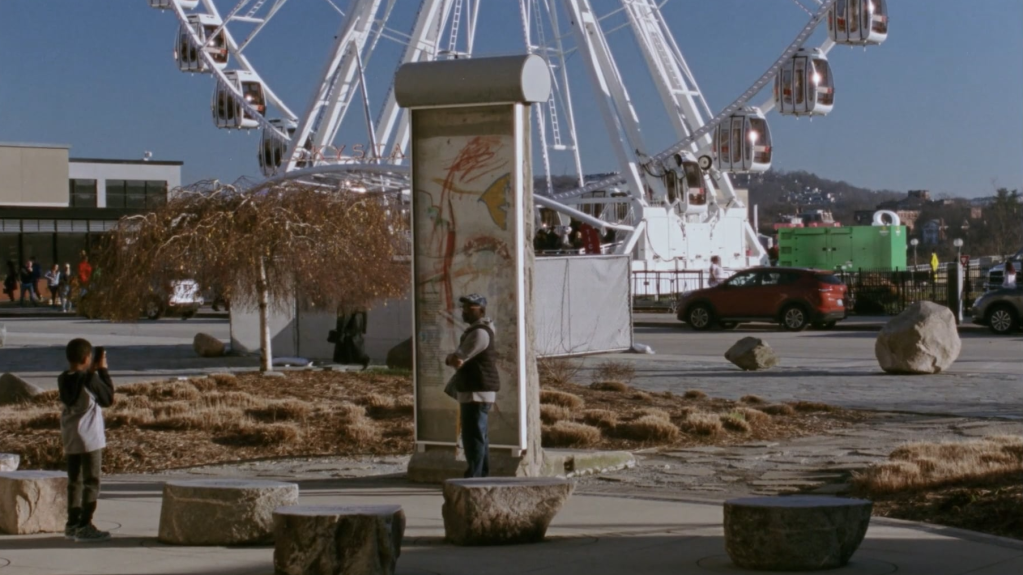
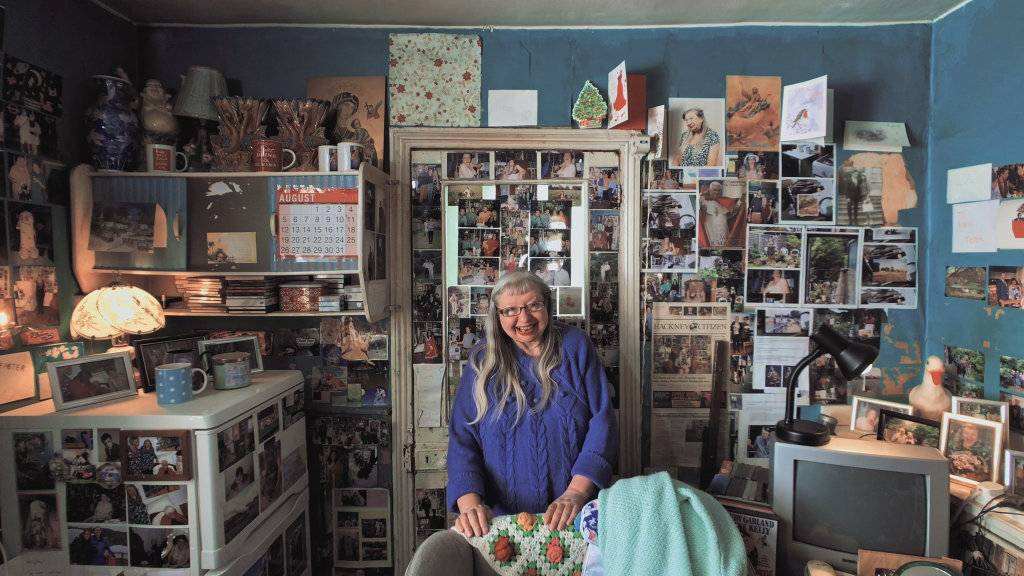
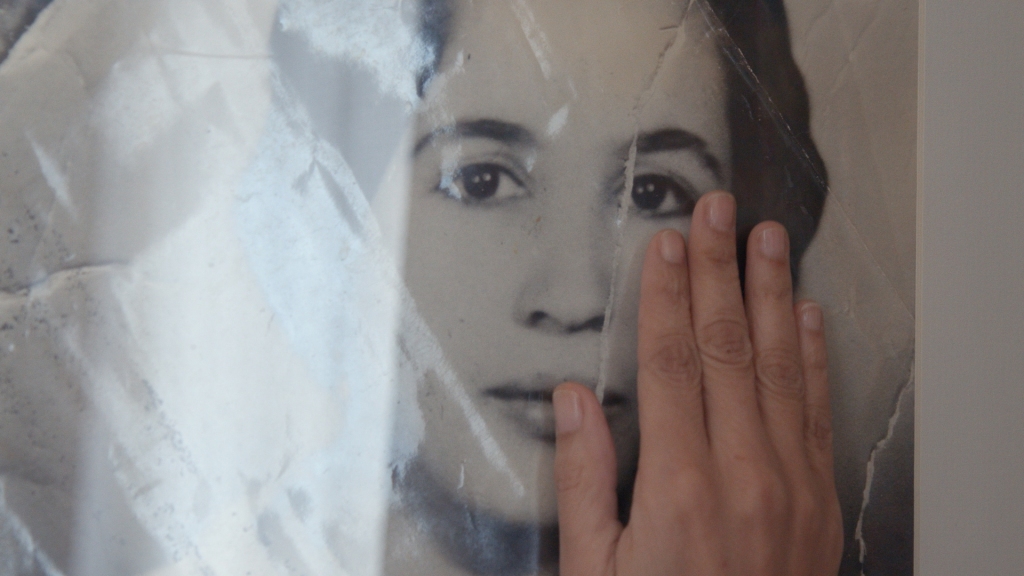
Leave a comment